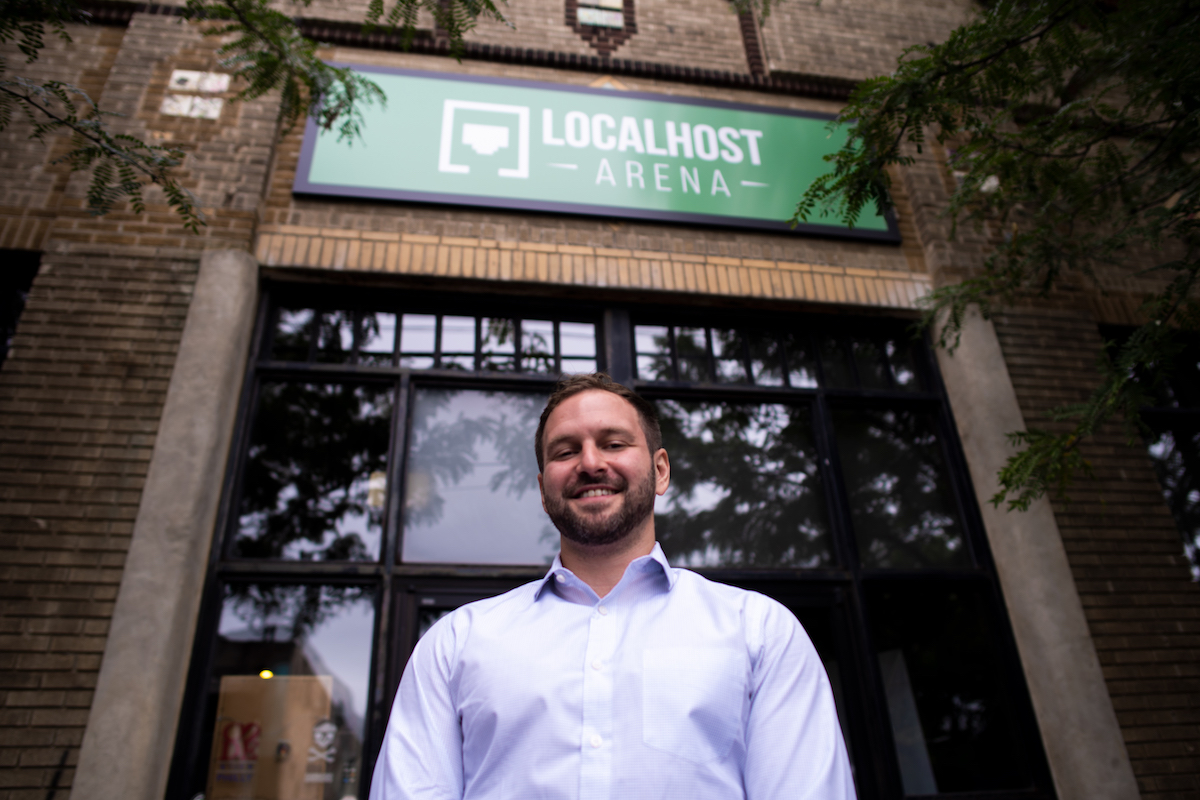Aramark, which employs some 6,500 people in the city, first got its start in 1936 with its founder selling peanuts in the back of a pickup truck.
Wind your clocks forward to 2016, and the Center City-based Fortune 500 company has cast its net of food, uniforms and facility management services across 21 countries, with a global workforce of 270,000, according to the company’s site. So sure enough, when Eric Llopis, senior vice president of strategy at Aramark, took the stage at Philly Startup Leaders’ Founder Factory conference on Thursday to talk about scale, a couple of hundred entrepreneurs huddled to hear him speak.
Llopis led off his chat with a few facts about Aramark, which may be better known to some for its logo in the Philly skyline than for what it actually does. How about this whopper: the company serves 2 billion meals every year. Let it sink in for a moment that the figure amounts to feeding one meal to almost one-third of the human population.
Llopis shared a three-pronged recipe behind Aramark’s growth.
- Prove your value proposition and economics. The exec said this steps means focusing on the areas of a market where the odds of “winning” are the best. He pointed to Aramark’s partnership with celebrity chef Cat Cora to bring healthy food to Aramark’s business clients as an example of how the company focuses on niches worth its salt (in this case, healthy foods).
- Prove your business model via a pilot. This, essentially, is allowing business ideas to get a chance to fail by way of a trial. In the case of the Cora partnership, a pop-up retail shop gave the project a chance to have a trial run and adjust the model as needed. (We’ll point out that it’s easier for larger companies like Aramark, which can put up the cash for a trial).
- Demonstrate easy replicability of the model. Llopis swears by taking info from a trial run to roll out to other geographies.
Great to see @Aramark engaging in the innovation and startup community. Tips on how to scale #leadership #FounderFactory16 @startupleaders pic.twitter.com/KHIfBeVgnc
— Brock Weatherup (@brockweatherup) December 8, 2016
It was a pretty big deal seeing Aramark at a tech event like Founder Factory. Even though its not a tech company per se, it has invested in tech startups like Seamless, a food delivery app which was bought by Chicago-based Grubhub in 2013. It also owns Tapingo, another food delivery service focused on college campuses that’s based in San Francisco.
And yet, Aramark is a relatively rare sight along the tech scene. (Though there was one time back in 2013 that it sponsored a Startup Weekend.) “I’ll be honest: we don’t have anything specific,” said Llopis of the company’s effort to connect with the Philly tech ecosystem. “There’s no formalized way [to connect with tech startups].”
Maybe Aramark’s presence at the conference (coupled with the announcement of a new, bigger Philly HQ scheduled to be up and running by 2018) is a sign of changing times at the Fortune 500 company.
Before you go...
To keep our site paywall-free, we’re launching a campaign to raise $25,000 by the end of the year. We believe information about entrepreneurs and tech should be accessible to everyone and your support helps make that happen, because journalism costs money.
Can we count on you? Your contribution to the Technical.ly Journalism Fund is tax-deductible.
Join our growing Slack community
Join 5,000 tech professionals and entrepreneurs in our community Slack today!


